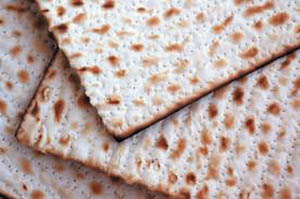
Without fail, the one holiday we get the most emergency calls from is Pesach. Crunching on hard matzah for a week can test even the hardiest of mouths. Combine that with the sticky candy that seems to be ubiquitous this time of year and overall nonstop holiday eating, and it is a recipe for disaster. Even in the best of circumstances (and the most well-kept mouths), emergencies can happen. Here are some tips to help make your Pesach, or any holiday, much smoother.
The following is a real-life scenario (just ask Bubbie Schneider). While playing with her grandchildren one day, one suddenly reared his head up—and smacked into Bubbie’s mouth. The first thing she did was to apply ice to prevent any swelling. The next thing was to consult a dentist to determine if treatment was required (we determined it wasn’t, after we stopped laughing). If there is pain, an over-the-counter pain reliever can be taken. If you have a broken tooth or a toothache, rinse the mouth gently with warm water to clean the area. The same applies if you bite your lip or your tongue. Never apply an aspirin directly to the gum or aching tooth.
For a permanent tooth that gets knocked out, the key to saving it is to get it back in the socket as soon as possible. Do not scrub the tooth clean, if it is visibly dirty rinse it very lightly with water. If you can, place the tooth back in the socket without touching the root. If that is not possible, keep it moist by placing it between your cheek and gum or in a glass of milk and get to your dentists’ office right away. The best chance at keeping the tooth viable depends on getting it back in the mouth within 30 minutes. If you cannot insert the tooth yourself, and you are in the park by Beth Abraham, feel free to knock on Dr. Schneider’s door and have him do it for you. Don’t worry, it wouldn’t be the first time. Even if you got the tooth in the socket, call your dentist immediately as further treatment and stabilization of the tooth may be necessary.
If you are eating and a crown or a filling comes out, do not panic. If it is Yom Tov and you are in no pain, just keep the area clean and call a dentist once Chag is over. Even if there is pain, an over-the-counter analgesic can tide you over until a dentist can be seen. If the pain is severe, call your dentist. Even over Shabbat and Yom Tov, our office has an answering service plus a covering doctor you can speak to if the need arises.
If you are not sure if a dental problem is an emergency, call your dentist anyway. Any obvious damage to a tooth, regardless of pain, should be treated as soon as possible. Pain is always an emergency, but so are lost fillings or crowns that do not hurt. Even without symptoms, the damage could affect the living tissues inside the tooth, leading to more complex and costly treatments or even tooth loss. While emergencies will happen even in the best situations, prevention is key. Precautions to take include avoiding chewing ice, hard candy or popcorn kernels, all of which can crack teeth; wearing a mouthguard when playing sports and using scissors to open packages or cut things—never your teeth. But above all, see your dentist regularly. Twice-yearly checkups go a long way in keeping your mouth healthy and pain free.
Dr. Herbert Schneider has been recognized for his work with fellowship awards from the Academy of General Dentistry and the American Endodontic Society. He also holds a prestigious Mastership from the World Clinical Laser Institute. Dr. Rachel Jacobs joined the practice in 2006. Her calm, yet precise manner makes her a hit with both adults and children. Both doctors are certified in the uses of three different clinical lasers.
Dr. Rachel Jacobs and Dr. Herbert Schneider










